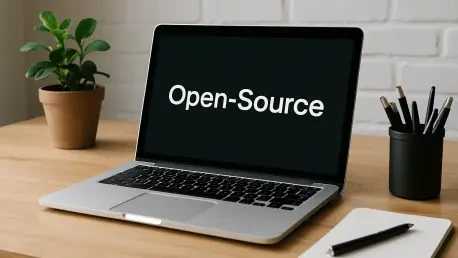In a development that has sent ripples through the tech industry, GitHub CEO Thomas Dohmke has announced his departure, scheduled for the end of this year, prompting widespread speculation about the future of a platform that serves as a bedrock for the open-source community. Under Dohmke’s leadership, GitHub has grown to an impressive 150 million users while pioneering AI-driven tools like GitHub Copilot, which supports 20 million developers worldwide. His leadership also forged transformative partnerships with AI innovators such as Anthropic and OpenAI, reshaping how code is created and shared. Yet, as GitHub deepens its integration into Microsoft’s CoreAI division, this transition raises critical questions about whether the platform can sustain its unique culture and momentum in the face of looming corporate oversight.
Navigating Leadership Transitions
Lessons from Past Open-Source Shifts
The history of open-source platforms offers a complex backdrop for understanding the potential impact of Dohmke’s exit from GitHub. Incidents like the Log4Shell vulnerability revealed how fragile underfunded projects can be when governance falters, exposing critical weaknesses in community-driven ecosystems. Similarly, Kubernetes’ transition to the Cloud Native Computing Foundation years ago demonstrated that while structural changes can bring long-term stability, they often introduce immediate complexities for developers. For GitHub, this leadership shift arrives at a moment when trust is paramount. The risk lies in whether Microsoft can replicate Dohmke’s ability to balance community needs with strategic growth, or if this change might disrupt the platform’s hard-earned credibility among its vast user base. Historical precedents suggest that without careful management, such transitions can erode confidence and hinder technical progress.
Current Challenges in Community Trust
Beyond historical lessons, the immediate concern for GitHub centers on preserving the trust of its developer community during this pivotal change. Dohmke’s tenure was marked by a commitment to grassroots innovation, fostering an environment where developers felt empowered to experiment and collaborate. However, with GitHub now falling under the broader umbrella of Microsoft’s CoreAI division, led by figures like Jay Parikh, there is apprehension that corporate priorities might overshadow this developer-centric ethos. The absence of a named successor to Dohmke only heightens uncertainty, as the platform’s agility could be tested under new executive oversight from Microsoft leaders like Julia Liuson and Asha Sharma. Key indicators, such as engagement with GitHub Actions and its 3 billion monthly CI/CD minutes, will provide insight into whether the community remains confident in the platform’s direction amidst these uncharted waters.
Strategic Implications for AI and Cloud Dominance
AI Innovation Under Corporate Oversight
Dohmke’s legacy at GitHub is inseparable from the platform’s rise as a leader in AI-driven development, largely through groundbreaking tools like GitHub Copilot and strategic alliances with AI pioneers. These initiatives not only revolutionized coding practices but also positioned GitHub as a critical component of Microsoft’s CoreAI strategy, aimed at redefining software development for the future. However, the full integration into CoreAI raises questions about whether this innovative spirit can persist under tighter corporate control. Developers who once viewed GitHub as a semi-autonomous space for creativity may now worry that Microsoft’s overarching goals could dilute the platform’s unique contributions to the coding landscape. The challenge lies in maintaining the balance between leveraging Microsoft’s resources and preserving the independent drive that fueled GitHub’s AI advancements.
Cloud Competition and Market Positioning
In the broader context of cloud computing, GitHub’s evolving role within Microsoft’s ecosystem is a calculated move to strengthen competitive standing against giants like AWS and Google Cloud. By aligning GitHub closely with Azure through CoreAI, Microsoft seeks to differentiate its offerings in a market where AI and DevOps capabilities are increasingly decisive factors. This strategy, however, carries inherent risks, as developers might perceive a loss of autonomy under heightened corporate alignment, potentially driving them toward rival platforms that emphasize open-source independence. For investors, the stakes are equally significant, as the success of this transition could either solidify Microsoft’s dominance in software-as-a-service markets or expose vulnerabilities if developer loyalty wanes. Monitoring metrics like Copilot adoption rates will be essential to gauge whether this strategic shift enhances or undermines GitHub’s market position.
Looking Ahead to Ecosystem Stability
Investor Perspectives and Risk Mitigation
From a financial standpoint, Dohmke’s departure serves as a litmus test for Microsoft’s ability to manage high-stakes transitions without sacrificing GitHub’s growth trajectory. Investors are keenly aware that a seamless shift could reinforce Microsoft’s leadership in cloud and SaaS sectors, while missteps might cede ground to competitors capitalizing on any perceived instability. The lack of a direct CEO replacement, with oversight shifting to Microsoft executives, introduces additional uncertainty about decision-making speed and innovation capacity at GitHub’s scale. To navigate these risks, tracking real-time data on platform usage and developer engagement becomes crucial. Diversifying exposure across cloud vendors may also offer a buffer against potential disruptions, as the broader tech landscape watches how Microsoft balances corporate integration with the open-source values that define GitHub’s appeal.
Future Pathways for Open-Source Innovation
Reflecting on the unfolding events, Dohmke’s exit marks a defining moment that tests the resilience of GitHub’s ecosystem in the face of significant change. The integration into CoreAI has sparked debates about the platform’s direction, but it also opens doors to explore how corporate resources could amplify open-source innovation if paired with community trust. Moving forward, Microsoft faces the task of ensuring that GitHub retains its role as a developer haven, possibly by fostering transparent governance and prioritizing user feedback in strategic decisions. Collaborations with the broader open-source community could further mitigate risks, setting a precedent for how large tech entities manage such transitions. As the industry observes the outcomes of these efforts, the lessons learned promise to shape future approaches to balancing innovation with stability in open-source platforms.









